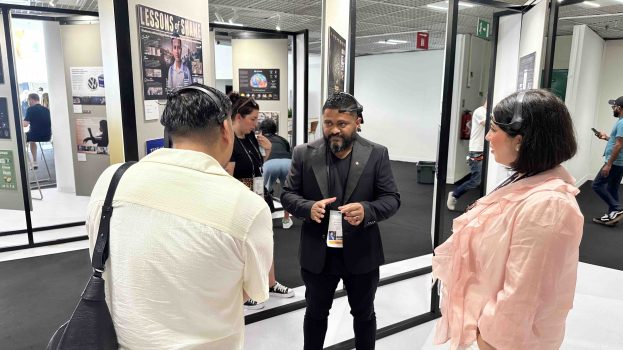By Shipra Chauhan
It is that time of the year when marketers and agencies are busy helping supermarket aisles and online stores transition their themes from Thanksgiving to Halloween to Christmas. But are we missing something?
In 2020, we have witnessed a poignant resurgence of conversations on diversity, equity, and inclusion pushing purpose into action. Both marketers and their agency partners are vying to ensure their strategy is reflective of this moment. But at first glance, the holiday season still seems mostly devoid of this colour.
In Canada, visible minorities make up 22% of the adult population. This population keeps growing every year as thousands of new immigrants, especially from Asia and the Middle East, arrive in a land miles away from home filled with Halloween spooks and Christmas eggnogs that hold little relevance to them. Why is it then that, with the exception of a few brands, most marketers show little to no interest in celebrating the holidays of a sizeable audience?
The truth is that while brands strive to embrace multiculturalism, they tend to steer clear of those with religious notes. Ethnic holidays are often deeply rooted in religion and its ritualism, which makes caution seem safer than participating and getting it wrong. But in the age of pluralism, it may not be in a brand’s favour to relegate the ethnic consumers to the sidelines, particularly when they expect brands to acknowledge and celebrate their racial and cultural diversity.
To grow relevance in this shifting reality, brands will have greater odds of succeeding if they are willing to walk into this new future bravely and proudly. In Sephora’s recent Diwali campaign, the beauty retailer shared creators’ stories of their culture and traditions. It featured Canadian makeup influencers Ankita Bhardwaj and Thanuska Subramaniam, showing how they celebrate and express their personal style for Diwali.
As we lean further and further into personalization of the individual customer journey and brand experience through data and technology, this opportunity has become ever more unignorable.
So, what does it take for brands to create and operationalize a holiday calendar that represents our country’s diversity and inclusion?
Genuine intent
Multicultural festive marketing will not yield results as a one-off promotional tactic for quick wins. It needs to be a sustained and thought-through strategy to build meaningful relationships over time with a more diverse set of audiences.
And a long-term strategy needs long view planning, meaning ethnic holidays need to be marked in the calendar just like Christmas and Halloween. Marketers can begin by researching their market’s landscape, the ethnic communities they want to tap into and the days of significance to them. It will help them plan and allocate investments, resources, and time for these occasions more holistically and effectively.
Diversify your investments and tactics
Data-guided precision will be ever more critical to multicultural marketing to reach these small but unique communities in a meaningful way. Sharper audience segmentation, geo-fenced hyper-local strategy, campaigns tailored to leverage social media, and relevant digital channels will be key to engage the right audience with the right occasion without compromising on impact or wasting marketing dollars.
Nuance is everything
The thing about culture is that it is not logical, linear and one-dimensional. It is acoustic, emotional and layered. And this vulnerability is further intensified on these occasions. It is imperative for those planning to understand the religious and ritualistic nuances to create the right conversations that go beyond a cookie-cutter narrative of “togetherness.” To get it right, engage your colleagues who represent these ethnic minorities and task them with finding those micro-moments that make these occasions unique. Then build stories that are distinct and true to those moments.
Celebrate the occasion, not your product
Not all holidays are about heightened consumption. While Hindus make their biggest purchase decisions during the auspicious period of Diwali, providing a perfect context to sell cars and luxury goods, such extravagance holds no relevance during the holy month of Ramadan. So, while some occasions will have an organic role for product promotion, on others, brands will simply need to be present with a sense of empathy and oneness with the community.
Shipra Chauhan is director of strategic planning at Juniper Park\TBWA.























